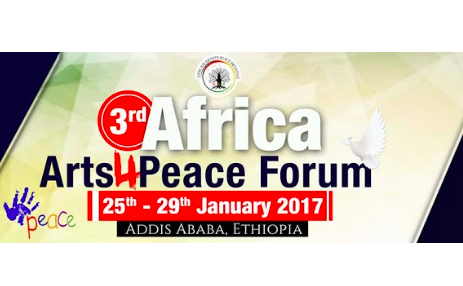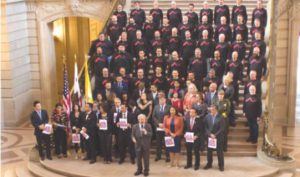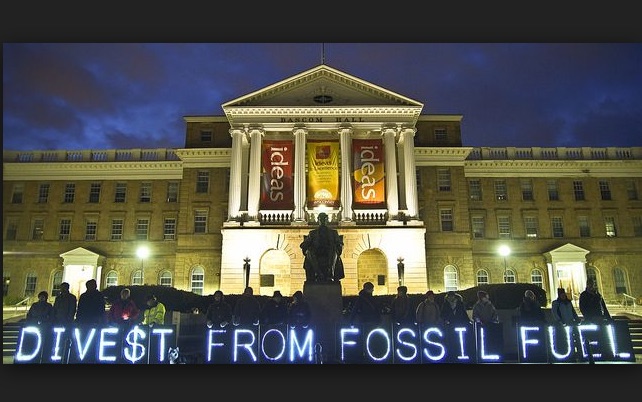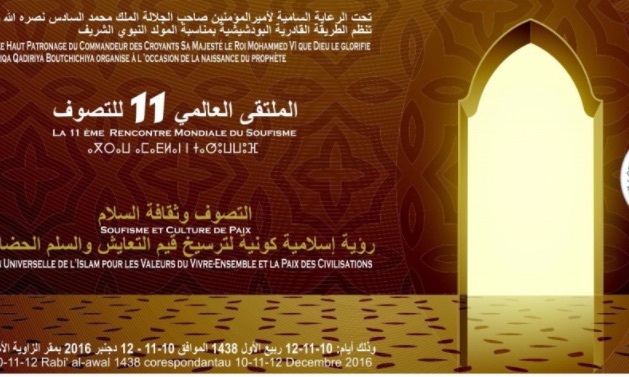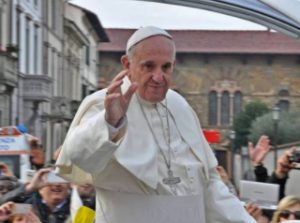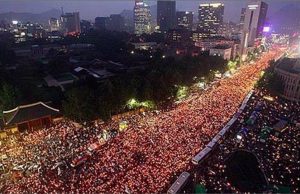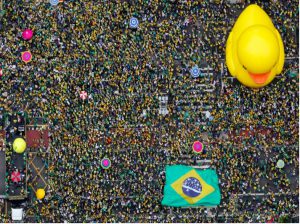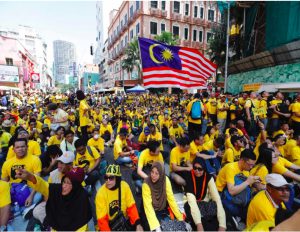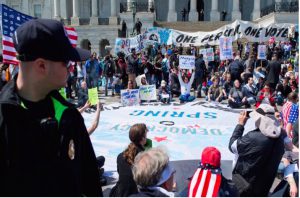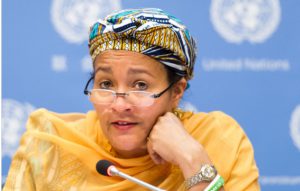
Seventy-first session
Agenda item 14
Culture of peace
Algeria, Angola, Argentina, Bahamas, Bangladesh, Belarus, Belgium, Bhutan, Bolivia (Plurinational State of), Brunei Darussalam, Bulgaria, Cambodia, Cameroon, China, Colombia, Costa Rica, Cuba, Democratic People’s Republic of Korea, Djibouti, Egypt, El Salvador, Eritrea, Guatemala, Guinea, Haiti, Honduras, Hungary, India, Indonesia, Iraq, Italy, Kazakhstan, Kiribati, Kuwait, Lao People’s Democratic Republic, Lebanon, Libya, Madagascar, Maldives, Malta, Malaysia, Mongolia, Montenegro, Morocco, Myanmar, Namibia, Nepal, Nicaragua, Pakistan, Palau, Paraguay, Peru, Philippines, Qatar, Republic of Korea, Russian Federation, Senegal, Seychelles, Singapore, Sri Lanka, Sudan, Tajikistan, Thailand, Tunisia, United Arab Emirates, Venezuela (Bolivarian Republic of), Viet Nam and Yemen: draft resolution
Follow-up to the Declaration and Programme of Action on a Culture of Peace
The General Assembly,
Bearing in mind the Charter of the United Nations, including the purposes and principles contained therein, and especially the dedication to saving succeeding generations from the scourge of war,
Recalling the Constitution of the United Nations Educational, Scientific and Cultural Organization, which states that, “since wars begin in the minds of men, it is in the minds of men that the defences of peace must be constructed”,
Recognizing the importance of the Declarationand Programme of Actionon a Culture of Peace, which serve as the universal mandate for the international community, particularly the United Nations system, for the promotion of a culture of peace and non-violence that benefits humanity, in particular future generations,
Recalling its previous resolutions on a culture of peace, in particular resolution 52/15 of 20 November 1997 proclaiming 2000 the International Year for the Culture of Peace, resolution 53/25 of 10 November 1998 proclaiming the period 2001-2010 the International Decade for a Culture of Peace and Non-Violence for the Children of the World, and resolutions 56/5 of 5 November 2001, 57/6 of 4 November 2002, 58/11 of 10 November 2003, 59/143 of 15 December 2004, 60/3 of 20 October 2005, 61/45 of 4 December 2006, 62/89 of 17 December 2007, 63/113 of 5 December 2008, 64/80 of 7 December 2009, 65/11 of 23 November 2010, 66/116 of 12 December 2011, 67/106 of 17 December 2012, 68/125 of 18 December 2013, 69/139 of 15 December 2014 and 70/20 of 3 December 2015, adopted under its agenda item entitled “Culture of peace”,
Recalling also its resolution 70/109 of 10 December 2015 on a world against violence and violent extremism, and resolution 70/291 of 01 July 2016 on the United Nations Global Counter-Terrorism Strategy Review,
Reaffirming the United Nations Millennium Declaration,which calls for the active promotion of a culture of peace,
Reaffirming also its resolution 70/1 of 25 September 2015, entitled “Transforming our world: the 2030 Agenda for Sustainable Development”,
Taking note of the 2005 World Summit Outcome adopted at the high-level plenary meeting of the General Assembly,
Welcoming the observance of 10 December as Human Rights Day,9 December as the International Day of Commemoration and Dignity of the Victims of the Crime of Genocide and of the Prevention of This Crime,and 2 October as the International Day of Non-Violence,as proclaimed by the United Nations,
Recognizing that all efforts made by the United Nations system in general and the international community at large for peacekeeping, peacebuilding, the prevention of conflicts, disarmament, sustainable development, the promotion of human dignity and human rights, democracy, the rule of law, good governance and gender equality at the national and international levels contribute greatly to the culture of peace,
Recognizing also the importance of respect and understanding for religious and cultural diversity throughout the world, of choosing dialogue and negotiations over confrontation and of working together and not against each other,
Taking note of the report of the Secretary-General,which provides an overview of the activities that have been carried out by the main United Nations entities working in the areas of a culture of peace and interreligious and intercultural dialogue, understanding and cooperation for peace since the adoption by the General Assembly of its resolutions 70/19 and 70/20 of 3 December 2015,
Recalling the proclamation by the United Nations Educational, Scientific and Cultural Organization of 21 February as International Mother Language Day, which aims at protecting, promoting and preserving linguistic and cultural diversity and multilingualism, in order to foster and enrich a culture of peace, social harmony, cross-cultural dialogue and mutual understanding,
Recalling also the proclamation by the United Nations Educational, Scientific and Cultural Organization of 30 April as International Jazz Day, which aims to develop and increase intercultural exchanges and understanding between cultures for the purpose of mutual comprehension, tolerance and the promotion of a culture of peace,
Welcoming the efforts of the international community to enhance understanding through constructive dialogue among civilizations, in particular through various initiatives at the local, national, regional and international levels, including relevant efforts affiliated with the Silk Road Economic Belt and 21stCentury Maritime Silk Road (the Belt and Road),
Expressing its appreciation for the ongoing efforts of the United Nations Alliance of Civilizations in promoting a culture of peace through a number of practical projects in the areas of youth, education, media and migrations, in collaboration with Governments, international organizations, foundations and civil society groups, as well as media and the private sector,
Welcoming the successful holding on 1 September 2016 of the General Assembly High-level Forum on the Culture of Peace, convened by the President of the Assembly, and the greater participation and increased interest, in particular of Member States, in making country statements during its plenary session and the wide-ranging partnership and inclusive collaboration among Member States, international organizations and civil society, as evidenced at the Forum, while taking note of the President’s summary of the deliberations during the day-long Forum focusing on the implementation of the Declaration and Programme of Action,
Recognizing the role of women and youth, as well as the contribution of children, in advancing the culture of peace, and in particular the importance of greater involvement of women in the prevention and resolution of conflicts and in activities promoting a culture of peace, including in post-conflict situations,
Welcoming the adoption by the General Conference of the United Nations Educational, Scientific and Cultural Organization at its thirty-sixth session of a programme of action for a culture of peace and non-violence, and noting that the objectives of that programme of action are in line with the Declaration and Programme of Action on a Culture of Peace adopted by the General Assembly,
Recalling the Yamoussoukro Declaration on Peace in the Minds of Men, and acknowledging the observance in 2014 of the twenty-fifth anniversary of its adoption,
Noting the initiatives of civil society, in collaboration with Governments, to strengthen civilian capacities to enhance the physical safety of vulnerable populations under threat of violence and to promote the peaceful settlement of disputes,
Encouraging the continued and increasing efforts and activities on the part of civil society organizations throughout the world in advancing the culture of peace as envisaged in the Declaration and Programme of Action,
1. Reiterates that the objective of the effective implementation of the Programme of Action on a Culture of Peace2 is to strengthen further the global movement for the culture of peace following the observance of the International Decade for a Culture of Peace and Non-Violence for the Children of the World, 2001-2010, and calls upon all concerned to renew their attention to this objective;
2. Welcomes the inclusion of the promotion of a culture of peace in “Transforming our world: the 2030 Agenda for Sustainable Development”;
3. Invites Member States to continue to place greater emphasis on and expand their activities promoting a culture of peace at the national, regional and international levels and to ensure that peace and non-violence are fostered at all levels;
4. Invites the entities of the United Nations system, within their existing mandates, to integrate, as appropriate, the eight action areas of the Programme of Action into their programmes of activities, focusing on promoting a culture of peace and non-violence at the national, regional and international levels;
5. Commends the United Nations Educational, Scientific and Cultural Organization for strengthening efforts to mobilize all relevant stakeholders within and outside the United Nations system in support of a culture of peace, and invites the Organization to continue to enhance communication and outreach, including through the culture of peace website;
6. Commends the practical initiatives and actions by relevant United Nations bodies, including the United Nations Children’s Fund, the United Nations Entity for Gender Equality and the Empowerment of Women (UN-Women) and the University for Peace, as well as their activities in further promoting the culture of peace and non-violence, in particular the promotion of peace education and activities related to specific areas identified in the Programme of Action, and encourages them to continue and further strengthen and expand their efforts, and in this context notes with appreciation the global launch of the United Nations Children’s Fund Early Childhood Peace Consortium in September 2013 and its activities, including those for vulnerable children;
7. Encourages the United Nations peacebuilding architecture to continue to promote peacebuilding activities and to advance the culture of peace and nonviolence in post-conflict peacebuilding efforts at the country level;
8. Urges the appropriate authorities to provide age-appropriate education in children’s schools that builds a culture of peace, including lessons in mutual understanding, tolerance, active and global citizenship and human rights;
9. Encourages the involvement of media, especially the mass media, in promoting a culture of peace and non-violence, with particular regard to children and young people;
10. Commends civil society, non-governmental organizations and young people for their activities in further promoting the culture of peace and nonviolence, including through their campaign to raise awareness on the culture of peace and the peaceful settlement of disputes;
11. Encourages civil society and non-governmental organizations to further strengthen their efforts to promote the culture of peace, inter alia, by adopting their own programme of activities to complement the initiatives of Member States, the organizations of the United Nations system and other international and regional organizations, in line with the Declaration1 and Programme of Action on a Culture of Peace;
12. Invites Member States, all parts of the United Nations system and civil society organizations to accord increasing attention to their observance of the International Day of Peace on 21 September each year as a day of global ceasefire and non-violence, in accordance with General Assembly resolution 55/282 of 7 September 2001, and of the International Day of Non-Violence on 2 October, as decided by the Assembly in its resolution 61/271 of 15 June 2007;
13. Requests the President of the General Assembly to consider convening a high-level forum, as appropriate and within existing resources, devoted to the implementation of the Programme of Action on the occasion of the anniversary of its adoption, on or around 13 September, and requests the Secretariat to support its effective organization within their respective mandates and existing resources;
14. Invites the Secretary-General, within existing resources, in consultation with the Member States and taking into account the observations of civil society organizations, to explore mechanisms and strategies, in particular strategies in the sphere of information and communications technology, for the implementation of the Declaration and Programme of Action and to initiate outreach efforts to increase global awareness of the Programme of Action and its eight areas of action aimed at their implementation;
15. Requests the Secretary-General to submit to the General Assembly at itsseventy-second session a report, within existing resources, on actions taken by Member States, on the basis of information provided by them, and those taken system-wide by all concerned entities of the United Nations to implement the present resolution and on heightened activities by the Organization and its affiliated agencies to implement the Programme of Action and to promote the culture of peace and non-violence;
16. Decides to include in the provisional agenda of its seventy-second session the item entitled “Culture of peace”.
